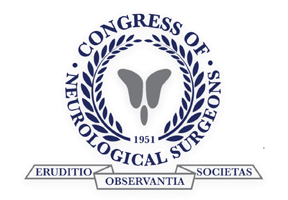Without advanced robotic technology in the operating room, surgeons must rely on imaging as they perform spinal surgeries “freehand.” Operations can last for hours, and circumstances may require larger incisions at the site. Highly trained neurosurgeons can complete freehand procedures with skilled accuracy, but there is still room for human error should they experience physical or mental fatigue.
However, with advanced robotic technology, surgeons can increase the precision of the procedure, completing each phase with planned accuracy, shortening operation times, and achieving predictable results for their patients.
Today, we’re answering a few common FAQs about robotic spine surgery to help explain what it is and how this technology benefits patients.
What is Robotic Spine Surgery?
Robotic spine surgery is a technological revolution that allows neurosurgeons to complete complex spinal procedures through minimally invasive techniques. Instead of relying on image guidance during your procedure, your neurosurgeon will gather imaging before surgery and use the detailed results to program the robotic technology to your exact anatomy.
In the operating room, your doctor will carefully use the programmed technology to guide the procedure, ensuring increased accuracy and precision at every step.
What are the Benefits of Robotic Spine Surgery?
While traditional spinal surgeries can involve major incisions, lengthy operations, and more room for fatigue or error, robotic technology allows doctors to simplify the procedure and operate with pinpoint accuracy. Benefits of robotic spine surgery include:
- Faster recovery
- Less downtime
- Less pain management
- Less rehabilitation
- Minimal scarring
- Precise, accurate operations
- Predictable results
- Same-day procedures
- Small incisions (typically ½ inch at most)
What Can Robotic Spine Surgery Treat?
Robotic spine surgery can help treat common spinal conditions like:
- Bulging discs
- Central spinal canal stenosis (narrowing canal – center)
- Compression fractures
- Degenerative disc disease
- Herniated discs
- Lumbar radiculopathy (sciatica)
- Neural foraminal stenosis (narrowing canal – side)
- Scoliosis
- Spinal cord tumors
- Spondylolisthesis (spinal instability)
- Syringomyelia (spinal cysts)
If you have any of these spinal complications and suffer from pain or limited mobility, robotic surgery may help you find relief or regain movement.
Am I a Good Candidate for Robotic Spine Surgery?
Patients with treatable spinal complications often find relief through robotic spine surgery. If you struggle with any of the conditions mentioned above or experience undiagnosed spinal complications, talk to your neurosurgeon about whether robotic spine surgery would benefit you.
Georgia Neurological Institute features one of only two outpatient surgery centers in Georgia utilizing robotic technology for spinal surgery.
If you experience moderate to severe back pain and are ready to live pain-free again, talk to the neurosurgeons at GNI. We will perform diagnostic testing and help determine the next steps in your path toward recovery. Schedule a consultation with our team today: 478-743-7092
Related Blogs:
XLIF and OLIF – Extreme Lateral & Oblique Lateral Interbody Fusion






